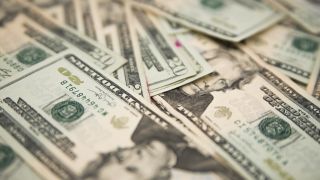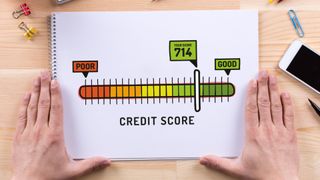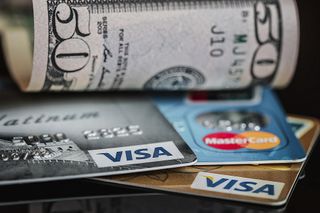The collective battle against coronavirus has seen many people and businesses come together like never before. This includes issuers of the best credit cards, many of whom are offering assistance to customers who have seen their finances thrown into chaos by the COVID-19 pandemic.
As a result, most credit card borrowers are likely to find themselves eligible for help that would not have been offered before the coronavirus struck, including extended payment deadlines, a lower annual percentage rate (APR), the waiving of late fees, and even protection for your credit score.
Yet while such concessions might prove welcome in the short-term, it is still worth thinking about the long-term implications of accepting these offers. Importantly, we’re not accusing credit card issuers of anything underhand… it’s just that there are some things that borrowers need to understand.
What kind of assistance are credit card issuers offering?
It's important to note that the finer details of the help that has been made available to credit card borrowers vary across the credit card companies. In some instances, it will differ between customers of the same provider too, with the concessions being assessed on a case-by case basis. For these reasons, contacting your credit card issuer is the only sure-fire way to find out exactly how it is willing to help you.

That said, if you hold a credit card with one of the largest credit card companies, an indication of the range of assistance that can be expected is summarized below. An idea of the assistance provided by a number of other providers can also be found here.
American Express
At Amex, it appears that credit card borrowers seeking assistance are being treated on a case-by-case basis, so you need to call (the number can usually be found on the back of your credit card). Anecdotal evidence from The Points Guy showed some customers have been successful in getting their interest and late fees waived, while others have qualified for a lower rate of interest.
Bank of America
Bank of America credit card holders who are struggling with their financial situation have the option to submit a payment deferral request online, or should contact their bank by phone to discuss.
Capital One
Card holders at Capital One whose income has been impacted by the coronavirus can discuss assistance by signing into their online account, using the mobile app, or calling. Further information can be found here.
Citi
Customers of Citi are being asked to call to speak with a representative of the bank, but could potentially be allowed to enroll in forbearance or even increase the amount of credit they are allowed.
Discover
Discover card holders have been told to log in online or via the app, or to call in order to see if they might qualify for payment assistance and waived late fees.
Synchrony Bank
Credit card customers of Synchrony can expect the waiving of late fees and other charges, while the provider will listen to requests for an increased credit limit. Synchrony's response to coronavirus can be found here.
Wells Fargo
Wells Fargo has told its credit card customers to contact them to talk about payment assistance options, but said that some may be able to defer payments without facing late fees.
Should I be looking to take advantage of the help on offer from credit card issuers?
It is undoubtedly a good thing that credit card issuers are looking to help their customers cope better with their financial struggles during the coronavirus outbreak. However, just because borrowers now find a degree of flexibility available to them, it does not necessarily make it the best option for them going forward.
When it comes to forbearance, and the option to put off your monthly credit card payment without incurring late fees, penalty APRs or a negative mark against your credit score, there are a number of things for borrowers to consider.
Pro: Money is available to you straight away

The obvious benefit of forbearance is that it means you don’t have to part with the cash that would otherwise have been used for your monthly credit card payment. Instead, this can be used for everyday living expenses, such as groceries or rent, and could provide invaluable leeway if you need to apply for unemployment benefit or are waiting for the arrival of the coronavirus stimulus check.
Con: Interest will still need to be paid later
The downside of putting off your credit card payments is that your balance will carry on accruing interest throughout the period of forbearance. Interest will have to be paid on interest – a concept known as compounding – meaning your debt will grow faster than before.
Importantly, if you need to use your credit card, your balance and the interest that will be charged will continue to snowball even faster.
At some point, you will still need to work out how to pay off your credit card debt. It may be the case that you can transfer any existing credit card debt to a 0% balance transfer card – the best credit cards for balance transfers currently offer a term of almost two years during which you won’t accrue any extra interest on your credit card debt, and can make plans to pay it off altogether.
Find out more about how a balance transfer card can help you manage your debt.
However, if forbearance is likely to simply be a temporary band aid for a wider and more serious debt problem, it may be worth considering enlisting the service of the best debt consolidation companies to help.
Pro: Your credit score won't be impacted by missing a payment

The promise that your credit score will not be negatively affected if you miss payments under forbearance is valuable. It means that when you apply, for instance, for a personal loans online in the future, your credit score should be untainted by the current predicament that so many people currently find themselves in.
Con: A rising balance could still see your credit score affected
While 35% of a borrower’s credit score is based on payment history, FICO reveals that 30% depends on “amounts owed”. This means that if the balance of your credit card rises – and it will if you are accruing interest - then your credit score could go down. Obviously making new purchases, without paying anything off the balance, will affect this even further.
Credit card forbearance: It's a trade off
The choice of whether to opt for credit card forbearance or not represents a trade off. The additional money in your pocket could prove invaluable to some, but ultimately the balance held on your credit card will still need to be paid off in the future. Your minimum monthly payment will almost certainly rise as a result, so you should try and make plans to cover this if you can.
It is also possible that your credit score could take a short-term hit, but given the protection most lenders are putting in place, it is unlikely you’ll need to call on the best credit repair services solely because you opted for forbearance.

